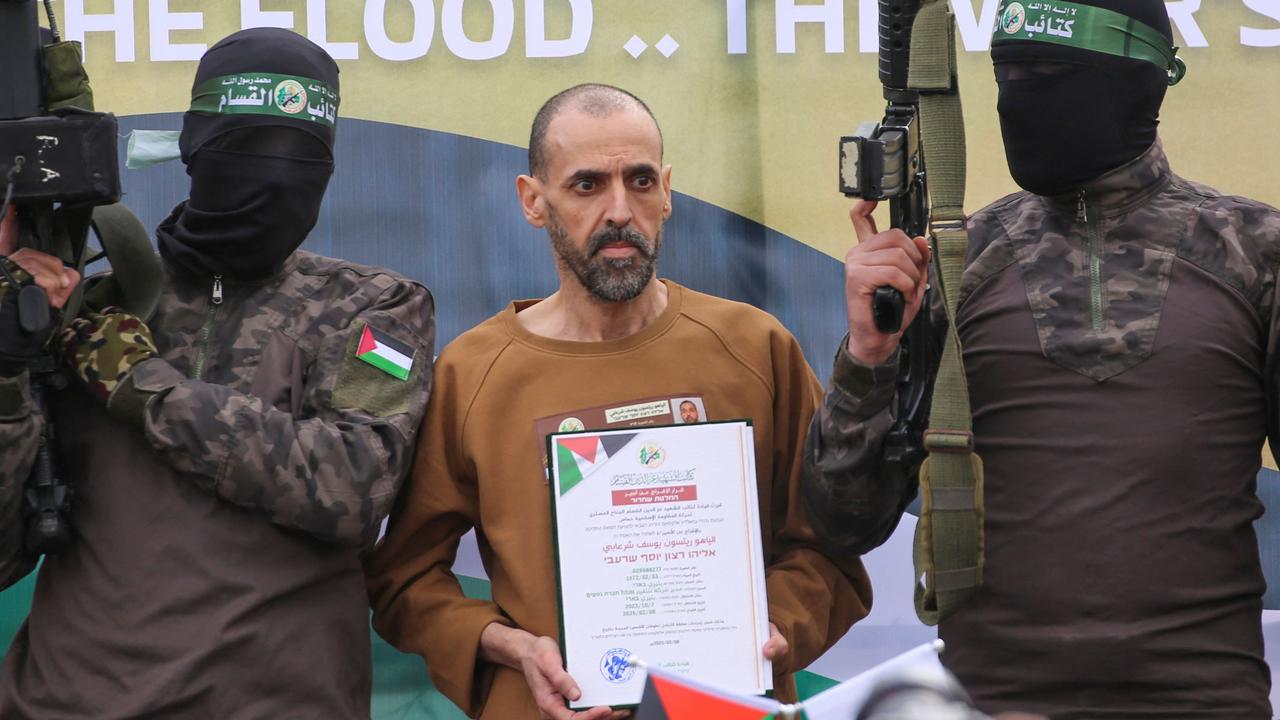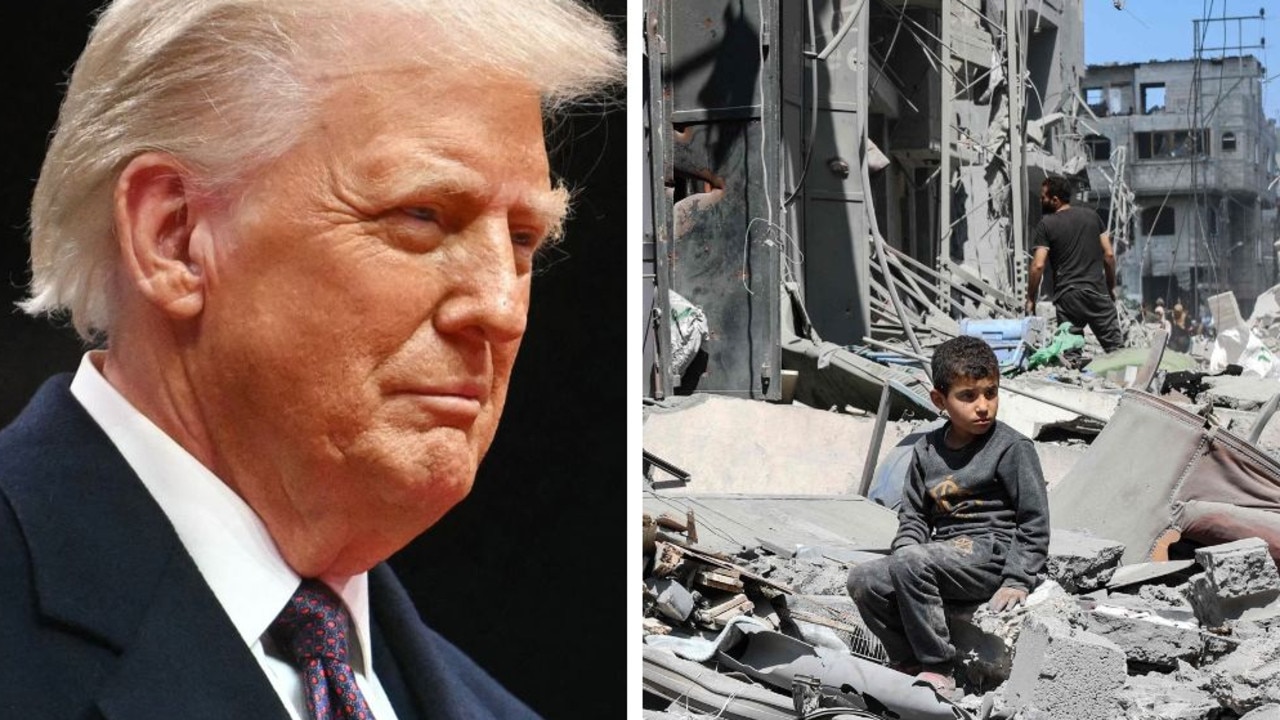‘Nuclear warheads delivered’: Putin makes major speech
Mobile communications were severed in an ‘unprecedented security measure as Vladimir Putin delivered a major address declaring Ukraine has ‘no chance’.
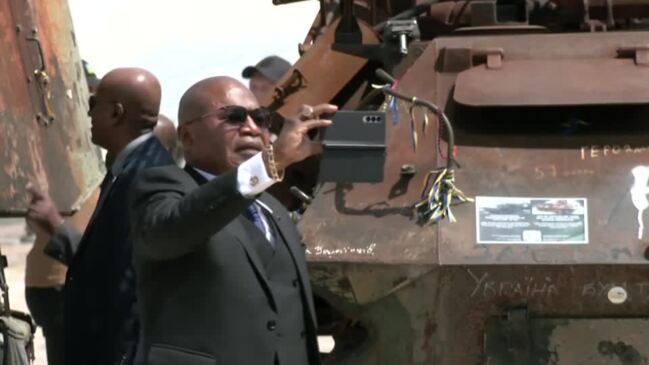
World
Don't miss out on the headlines from World. Followed categories will be added to My News.
President Vladimir Putin announced Russia had sent nuclear warheads to Belarus in a major speech declaring that Ukraine’s counter offensive had ‘no chance’ of success.
“The first nuclear warheads were delivered to the territory of Belarus … This is the first part,” Putin told an annual economic forum in St Petersburg.
Mobile communications in the city were severed in an ‘unprecedented’ security measure as the Russian leader announced more tactical nuclear weapons would be sent to the country before autumn.
“By the end of summer, the end of the year, we will complete the process,” Putin said.
Tactical nuclear arms are battlefield weapons that, while devastating, have a smaller yield compared to long-range strategic weapons.
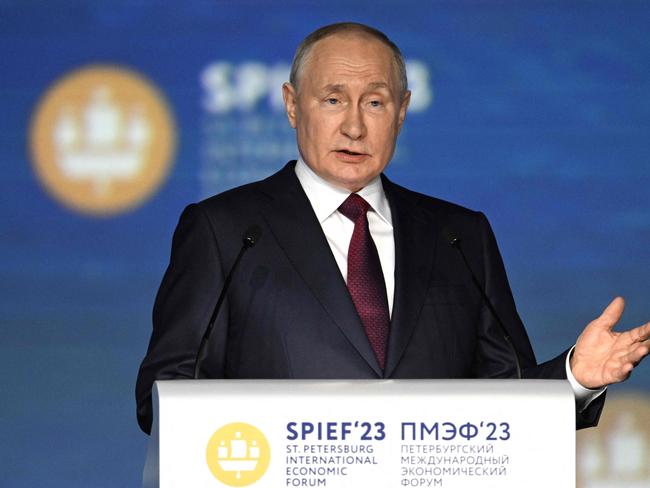
Belarusian leader Alexander Lukashenko has allowed his territory — which borders Ukraine as well as EU and NA members Poland and Lithuania — to serve as a launch pad for Russia’s Ukraine offensive.
Putin’s announcement had spurred fears of nuclear conflict, but experts and governments said it was unlikely it would change the course of the conflict.
Putin said the weapons were meant as deterrence to “those who are thinking of inflicting a strategic defeat on Russia”.
Belarusian troops began training on nuclear-capable Russian missile systems in April.
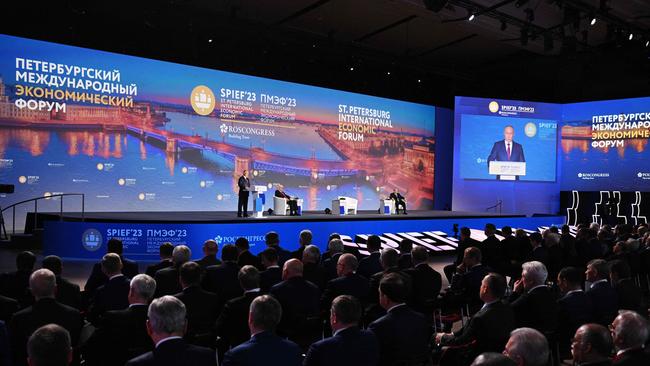
‘UNPRECEDENTED’ SECURITY FOR PUTIN
Mobile communications were severed Friday in Saint Petersburg in “unprecedented” security measures as President Vladimir Putin attended a global economic forum amid growing Ukrainian attacks on Russian soil.
The Roskongress Foundation, the organisers of the forum in Russia’s second city, earlier said internet communication via mobile operators would be blocked.
“Use wifi”, said Kremlin spokesman Dmitry Peskov, linking the heightened security to the threat of attacks from Ukraine.
In the buildings hosting the forum, sniffer dogs were on patrol and long queues of vehicles waited to be searched, according to the local Fontanka daily.
“The security measures … are unprecedented”, Peskov was quoted as saying by the Interfax news agency.
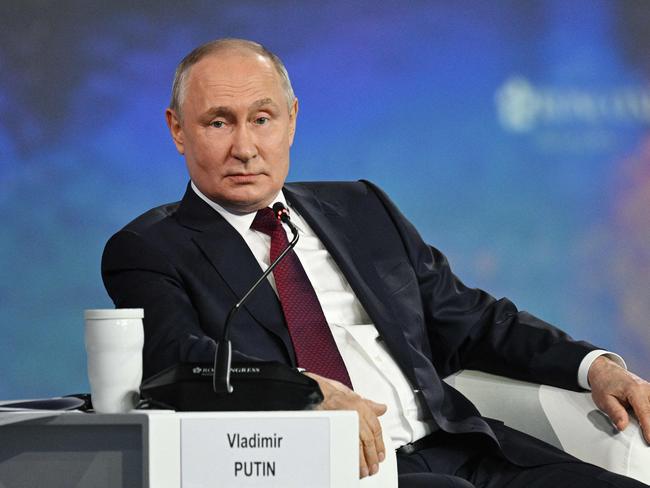
“This is normal practice. The enemy acts brazenly and does not abandon its attempts to cause damage”, said Peskov, adding that in such conditions “it is very important to remain attentive and mobilised”.
The forum in takes place in western Russia at a time when the country has been the target of numerous drone attacks in recent weeks, along with an armed incursion and explosions blamed by Moscow on Kiev’s forces.
Saint Petersburg is far from Ukraine, but an influential paramilitary blogger, Vladlen Tatarsky, was killed in an explosion here in April.
Moscow accused Kyiv’s secret services and Russian opponents of masterminding the attack.
A few weeks later, a high-voltage power line was damaged by another explosion near St Petersburg, with the Russian authorities suggesting sabotage.
PUTIN SAYS UKRAINE HAS ‘NO CHANCE’
Russian President Vladimir Putin on Friday said Ukraine’s counteroffensive would fail as Kyiv’s troops sought to advance in several directions, including the southeastern region of Zaporizhzhia.
“I think that Ukraine’s armed forces stand no chance here, as well as in other directions — I have no doubt about that,” Putin told an annual economic forum in Saint Petersburg.
AFP and representatives of other countries the Kremlin deems “unfriendly” were not accredited to cover the forum.
Putin claimed Ukraine’s armed forces were suffering “heavy losses”. “In some places Ukrainian units are managing to reach the first line (of defence), in other places they are failing,” he said.
“They are using the so-called strategic reserves,” he added. Putin said Ukrainian forces did not achieve their objectives in any section of the front, adding: “That’s the important thing.”
RUSSIA BLASTS AUSSIE BAN
Russia has accused the Albanese government of acting hysterically after it blocked Moscow from establishing an embassy a stone’s throw away from Parliament House.
Laws drafted to halt the construction of the embassy passed in just over an hour on Thursday after legal attempts to block the development failed.
The Kremlin said it was “yet another unfriendly action” which Russia would “take into account” in the future.
“To our regret, Australia diligently continues to move in the main stream of the authors of the Russophobic hysteria that is now taking place in the Western countries,” spokesman Dmitry Peskov told Russian News Agency TASS.
“Another unfriendly display from Australia. We will take this into account and if there are issues on the agenda that require the principle of reciprocity, we will act accordingly.”
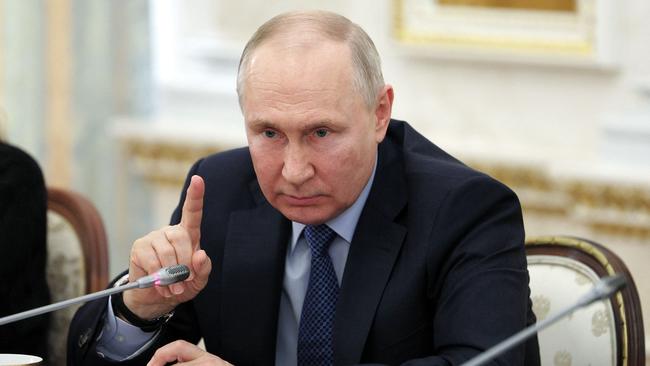
Prime Minister Anthony Albanese said it was within Australia’s national security interests to stop the build.
“The government has received very clear security advice as to the risks presented by a new Russian presence so close to Parliament House,” he said on Thursday.
“We are acting quickly to ensure the lease site does not become a formal diplomatic presence.”
He anticipated Russians would not be pleased but said given it’s ongoing invasion of Ukraine, the Kremlin didn’t have much of a leg to stand on.
“We don't expect that Russia’s in a position to talk about international law, given their rejection of it so consistently and so brazenly with their invasion of Ukraine and the atrocities that have occurred, that are occurring on an ongoing basis,” Mr Albanese said
Russia was granted approval to build a new embassy on the block of land in Yarralumla, some 400m away from Parliament House, in 2011 to replace its ageing Griffith facility.
Years of delays and inaction led to the National Capital Authority to issue an eviction order last year.
But last month, the Federal Court ruled the eviction notice was invalid.
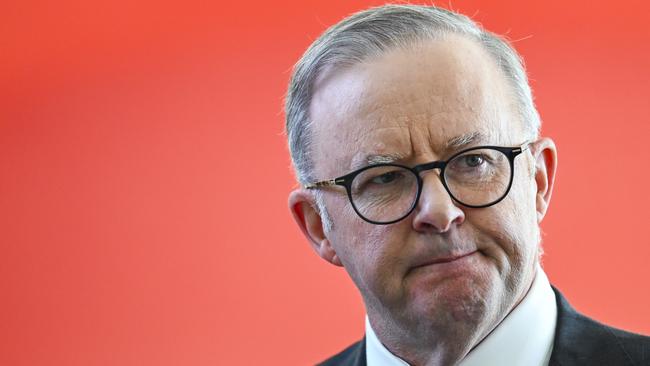
The laws took less than five minutes to be introduced, and passed through the House of Representatives. An hour later, it had passed the Senate.
Home Affairs Minister Clare O‘Neil said the site would not be used for a future diplomatic presence by any country.
“The government has received clear national security advice that this would be a threat to our national security,” she said.
“That is why the government is acting decisively today to bring this longstanding matter to a close.”
Russia’s existing embassy in the inner-south suburb of Griffith will remain.
‘PLAYING WITH FIRE’: MOVE THAT WILL ANGER PUTIN
Western allies have started training Ukrainian pilots to fly US-made F-16 jets as Kyiv battles Russia’s invasion, NATO’s secretary-general has revealed.
A coalition of Kyiv’s European backers led by the Netherlands and Denmark had said it will help teach Ukrainian flyers, after the United States gave its green light in May. But they have not previously specified when they might begin training the Ukrainians to fly the jets.
Russia has said that the West would be “playing with fire” by supplying Ukraine with the jets.
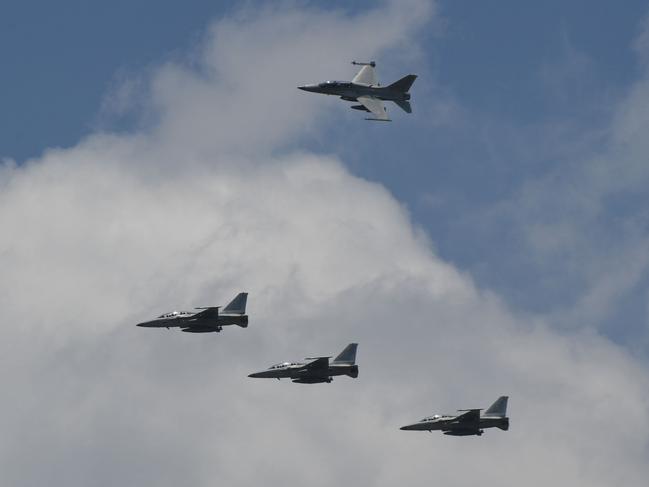
“The fact that training has started provides us with the option to also decide to deliver the planes and then the pilots will be ready to fly them,” Jens Stoltenberg said as he arrived at a meeting of defence ministers in Brussels.
US President Joe Biden in May cleared Ukraine’s access to long-sought F-16s, the most sophisticated military support material yet supplied by the West to Kyiv.
Mr Biden said Ukrainian President Volodymyr Zelenskyy had given him a “flat assurance” the jets would not be used to attack Russian territory.
RUSSIA PUTS ON A ‘POWERFUL RESISTANCE’
Kyiv reported strong resistance from Russian troops in its counteroffensive on the eastern and southern fronts despite pushing forward with the backing of Western weapons and training.
It comes as the chief of the UN’s atomic watchdog arrived in Zaporizhzia to assess risks to Europe’s largest nuclear plan following the destruction of a major dam.
Ukrainian artillery, meanwhile, continued to target Russian positions around the frontline hotspot of Bakhmut, in the eastern Donetsk region, where Moscow last month claimed victory in the longest battle of the war.
“The enemy is pulling up additional reserves and is trying with all its might to prevent the advance of Ukrainian forces,” Ukrainian Deputy Defence Minister Ganna Malyar said.
Malyar reported an advance of more than three kilometres (1.8 miles) in the area of Bakhmut over the past ten days.
“There is a gradual but steady advance of the armed forces” in the south, Malyar told reporters.
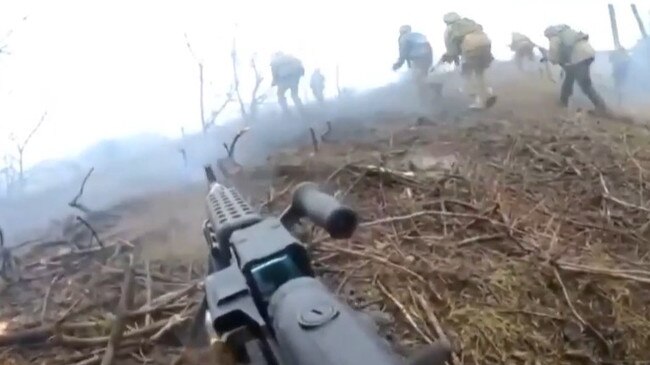
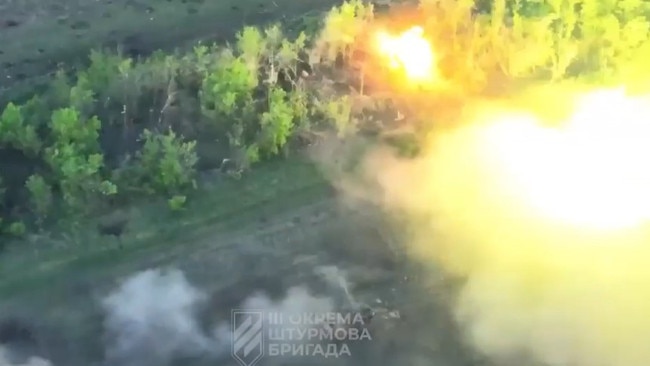
“At the same time, the enemy is putting up powerful resistance” on the southern front, she said, referring to mined fields, explosive drones and intense shelling.
Since the start of the offensive in early June Ukrainian forces have recaptured seven settlements and more than 100 square kilometres (under 40 square miles) of territory, said Oleksiy Gromov of the Ukrainian armed forces’ general staff.
Russia said it had repelled all Ukrainian assaults, with President Vladimir Putin this week claiming that Ukraine suffered near “catastrophic” losses.
SITUATION ‘SERIOUS’ AT NUCLEAR PLANT
UN nuclear chief Rafael Grossi On Thursday said that the safety situation at the Moscow-occupied Zaporizhzia nuclear power plant in Ukraine was “serious” after the destruction of the Kakhovka dam, but was being stabilised.
“On the one hand, we can see that the situation is serious, the consequences (of the dam’s destruction) are there, and they are real,” Grossi said on a visit to the plant. “At the same time, there are measures that are being taken to stabilise the situation.”
The region of Zaporizhzia, where fighting has stepped up, is home to the Zaporizhzia nuclear power plant.
Its safety has been a major concern ever since Russian forces seized it more than a year ago, but the destruction of a nearby dam has sparked new fears.
The Russian-held Kakhovka dam, destroyed last week in an attack Kyiv and Moscow blamed each other for, formed a reservoir that provided the cooling water for the plant.
RUSSIAN EMBASSY BANNED IN CANBERRA
Australia will terminate a lease agreement with Russia that would pave the way for a second embassy in Canberra due to national security threats.
Russia currently holds the lease for a parcel of land at Yarralumla, where it aims to construct its new embassy building.
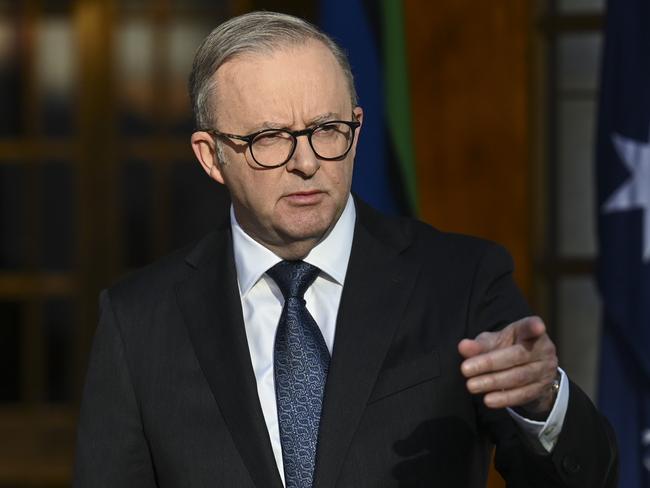
Prime Minister Anthony Albanese said on Thursday he will introduce a law into parliament asking for the issue to be addressed immediately.
“We anticipate this legislation will pass both the House of Representatives and the Senate this morning,” he told reporters in Canberra.
“This action follows the conclusion of long-running litigation regarding the site.
“The government has received very clear security advice as to the risk posed by a new Russian presence so close to Parliament House,” he said.
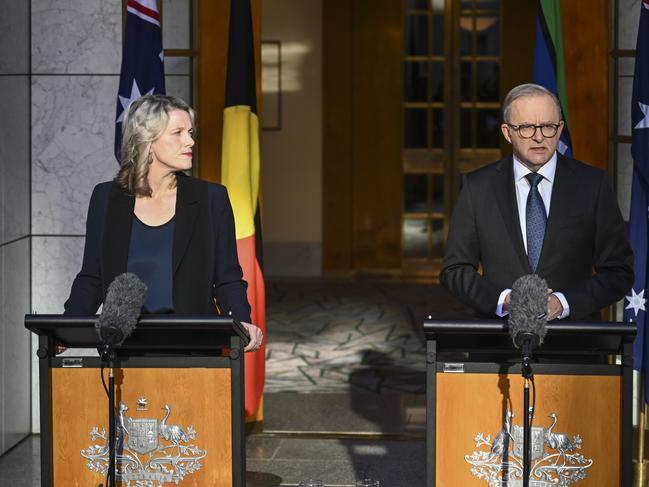
Home Affairs Minister Clare O’Neil said the bill being introduced to parliament was “straightforward”.
“The location sits directly adjacent to Parliament House and the government has received clear national security advice that this would be a threat to our national security and that is why the government is acting decisively to bring this longstanding matter to a close,” she said.
Russia currently has a diplomatic presence in the Canberra suburb of Griffith and that arrangement would continue, Mr Albanese said.
RUSSIAN SOLDIER SURRENDERS TO DRONE
Chilling drone footage has revealed the harrowing moment a Russian soldier used hand signals to surrender before being guided across enemy lines by the same Ukrainian drones that used explosives to kill his comrades.
Russian soldier Ruslan Anitin begged Ukrainian pilots to spare his life if he surrendered after his platoon was taken out by relentless drone and mortar attacks near the eastern city of Bakhmut on May 9.
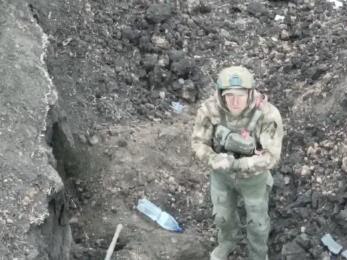
Harrowing drone footage published by the Wall Street Journal shows the soldier standing up without his rifle and drawing his finger across his neck while shaking his head.
He later told the Wall Street Journal members of his unit felt they were being thrown into a “meat grinder” by their commanders when the unit was moved to Bakhmut as other troops retreated from the region.
After hours of small bombs being dropped on the trenches — and two other men in the Russian unit taking their own lives — the Russian soldier had no energy left and decided to surrender.
He told the Wall Street Journal: “I thought I would end up staying in that trench forever.”
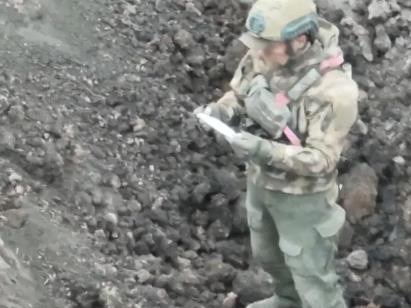
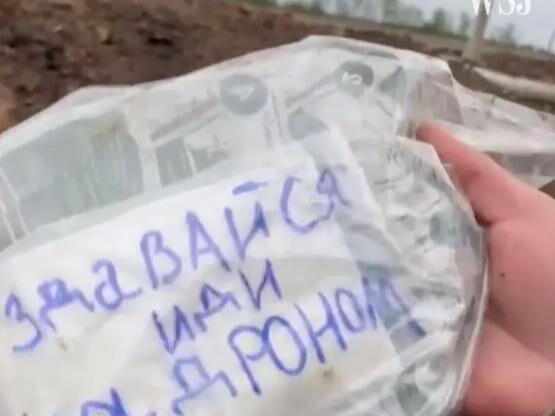
An assault drone had already been sent out to kill the Russian soldier, but when the Ukrainian drone’s pilot saw the images of the soldier begging for his life, he decided to abort the mission.
“Despite that he is an enemy, even though he has killed our boys, I still felt sorry for him,” said the drone’s pilot.
The Ukrainian pilot used a blue marker to write in Russian on the packaging of his food rations: “Surrender follow the drone.”
The Russian soldier agreed and was led by the drone for over an hour through narrow trenches and eventually across enemy lines.
Ten days after his capture, the soldier told the Journal he still wants to return to Russia — even if it means going to jail.
“Let them lock me up,” he said. “I’d like to return home to my family, and never experience the sorts of things that I have seen here.”
BATTLES RAGING AS KYIV ADVANCES
“Extremely fierce battles” are raging in parts of Ukraine as Kyiv’s forces ramp up their counteroffensive, according to the country’s deputy defence minister.
Hanna Malyar wrote on Telegram that Ukrainian forces had managed to advance near Bakhmut in the east and Zaporizhzia in the south.
But she conceded Russian forces were mounting a stiff defence in some areas.
Her comments come after another night of Russian missile and drones strikes on cities across Ukraine.
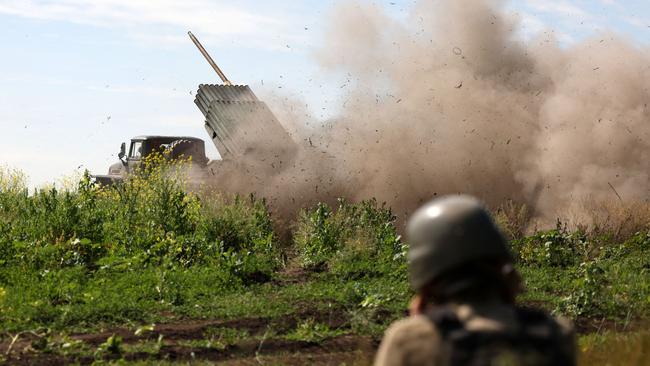
Russia fired four Kalibr missiles on the southern port city of Odessa from a warship in the Black Sea, Ukraine’s air force said. The country’s western-backed air defences shot down three of them.
But one missile hit a food warehouse, killing three employees and wounding seven, said Oleg Kiper, the head of the region’s military administration.
“There may be people under the rubble,” he added.
Another six other people were wounded after a business centre, shops and a residential complex in central Odessa were damaged “as a result of air combat and the blast wave”, he said.
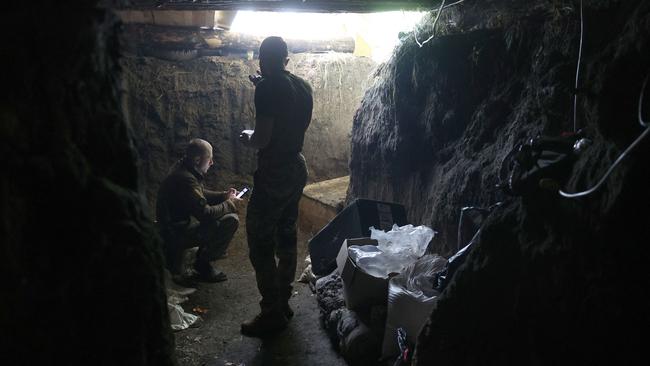
Overnight, in the eastern cities of Kramatorsk and Kostiantynivka, Russian missile strikes killed three people and destroyed dozens of private houses, regional authorities said.
A blast in Kramatorsk left a huge crater in a street of one- and two-storey family houses, an AFP correspondent said.
The blast completely demolished some houses, and several more around lost their windows and roofs.
The attack killed at least two men, while several other people were wounded and evacuated for treatment.
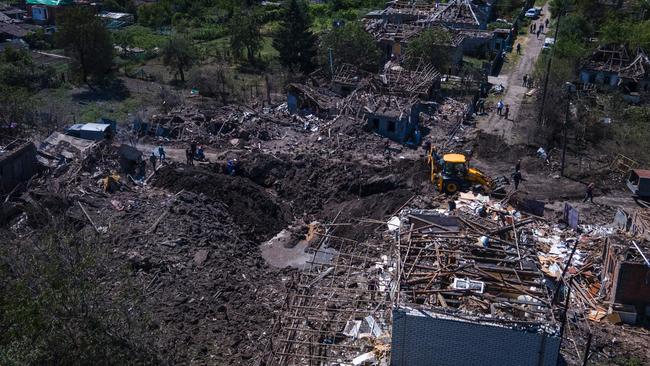
Police officer Anastasiya Korzun, 33, told AFP she and her husband had escaped their damaged house and then others trying to dig neighbours out of the rubble.
“My colleagues from the police were on the scene in 20 minutes to help,” Ms Korzun said, showing cuts on her arm from flying glass.
NATO Security General Jens Stoltenberg said Wednesday that there was always recognition that Ukraine would suffer losses as it seeks to breach heavily fortified Russian lines.
“There will be casualties, also, when it comes to modern NATO equipment,” he said.
“No one expected there to be zero casualties. The realities of this is fierce, fierce fighting.” Mr Stoltenberg reiterated that Ukraine’s offensive was making advances, but said “it is still early days and we do not know if this will be a turning point of the war”.
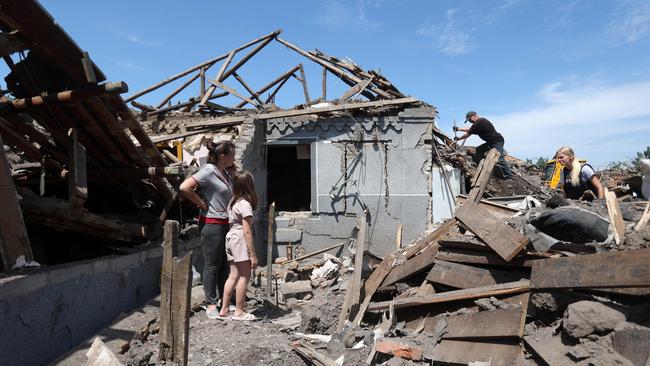
SHELLING KILLS SIX
Russia said it had launched multiple strikes targeting Ukraine’s troops and “foreign mercenaries” as well as warehouses containing foreign-made weapons.
“All the assigned targets have been hit,” the defence ministry said. Kyiv also reported that Russians had a day earlier shelled a van in northeastern Ukraine, close to the border with Russia, killing six people.
Ukrainian prosecutors said the Soviet-era van was hit near the village of Seredyna-Buda, on the border with Russia in the northeastern region of Sumy. Four of the victims were foresters, they said.
Moscow has intensified its nightly attacks on major Ukrainian cities in recent weeks while Kyiv has launched a long-awaited counteroffensive to reclaim Russian-occupied territory.
Ukraine said on Wednesday that its forces had retaken around three square kilometres of territory and advanced in some areas as far as 1.4 kilometres, in the last three days. Fighting was continuing near recaptured villages.
The latest strikes came as the death toll from Tuesday’s missile strikes on Kryvyi Rig – the hometown of President Volodymyr Zelenskyy – rose to 12.
Authorities in the central Dnipropetrovsk region, which includes Kryvyi Rig, also reported a fresh Russian drone attack overnight.
Although Kyiv says it is making gains after launching its counteroffensive, Russian President Vladimir Putin on Tuesday claimed his forces were inflicting “catastrophic” losses on Ukrainian troops.
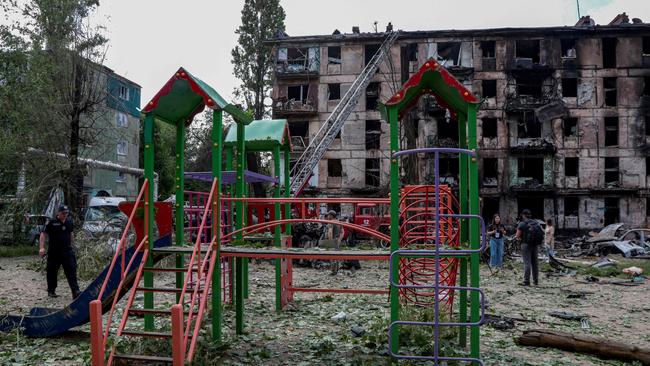
IAEA CHIEF TO VISIT PLANT
Mr Putin said during a Kremlin meeting with war bloggers that Russian forces were suffering from diminishing stockpiles of some military equipment, pointing in particular to attack drones and missiles.
Kyiv insisted that Ukraine’s push, bolstered with Western weapons and training, had “certain gains, implementing our plans, moving forward”.
According to military analysts, Ukraine has not yet committed the bulk of its forces in its counteroffensive, and is currently still testing the front with probing attacks to determine weak points.
In recent days, Kyiv has claimed to have recaptured several villages in the eastern and southern regions.
UN nuclear chief Rafael Grossi was expected at the Moscow-occupied Zaporizhzia atomic power plant on Wednesday.
But Russian news agencies reported the visit had been delayed by a day. Kyiv and the International Atomic Energy Agency (IAEA) did not confirm the delay.
The safety of Europe’s largest nuclear power plant, located in Ukraine’s southeastern region of Zaporizhzia, has been a concern since Russian forces seized it over a year ago.
Those concerns have been exacerbated by the breach of the Kakhovka dam that provided the cooling water for the plant.
While in Kyiv on Tuesday, Grossi said that while there was “no immediate situation”, the water level in the cooling pond was of concern.
The IAEA has warned that the dam disaster, which has left dozens dead and missing, further complicated “an already precarious nuclear safety and security situation” at the plant.
Kyiv has accused Moscow of blowing up the dam on the Dnipro River, while Russia has blamed Ukraine.
– with AFP
More Coverage
Originally published as ‘Nuclear warheads delivered’: Putin makes major speech
Read related topics:Russia & Ukraine Conflict



